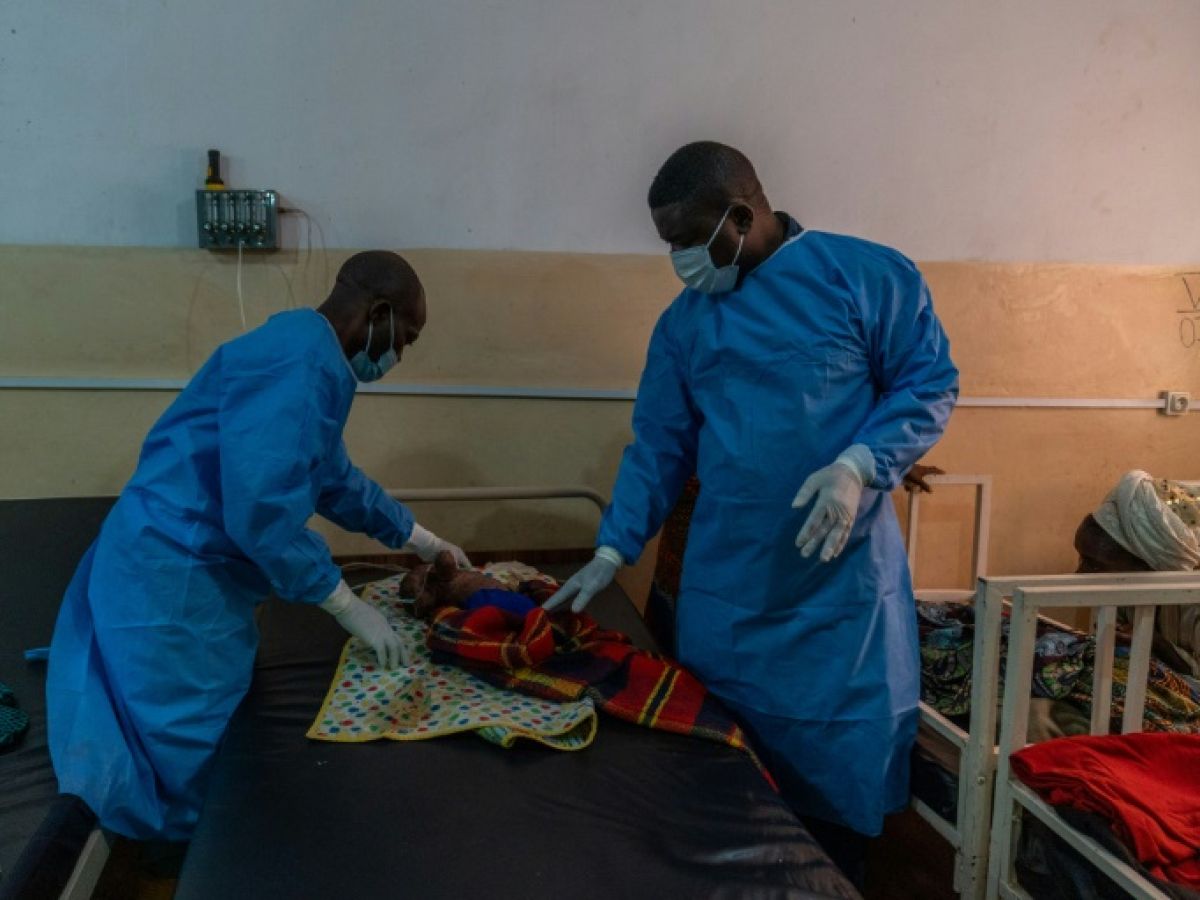The first shipment of vaccines against the coronavirus, donated by the European Union and manufactured by a Danish laboratory, arrived on Thursday in the Democratic Republic of Congo (DRC), the epicenter of the epidemic, which is due to receive a total of 200,000 doses this week.
An AFP journalist at the airport reported that the first batch of 99,100 vaccines was delivered by plane to the Congolese capital, Kinshasa, at midday. The remaining 200,000 doses are scheduled to arrive on another flight on Saturday.
"The vaccines have arrived in the DRC. They are now on their way to storage," Laurent Muschel, director of the European Emergency Preparedness and Response Authority (HERA), established during the Covid-19 pandemic, confirmed to AFP.
"These are expensive vaccines, which we as a country cannot afford (...) and for which we were fighting," Samuel-Roger Kamba, Minister of Health of the DRC, stressed on the tarmac. The DRC is one of the five poorest countries in the world, according to the World Bank.
The doses being delivered come from the Danish pharmaceutical company Bavarian Nordic. The vaccine, which currently has the only equivalent in Europe and the United States, is intended for adults only.
Trials are currently being conducted for possible use in children over the age of 12. Bavarian Nordic recently submitted an application to the European Medicines Agency to extend the approval to adolescents aged 12 to 17, the company said in a statement.
Another vaccine against MPOX, used in adults and children, is authorized in Japan.
"The DRC has secured Japanese vaccines for children. We are in discussions with Japan on this matter," Jean Kaseya, director of the African Union's health agency (Africa CDC), said at the airport on Thursday.
Some 3.6 million vaccines in total destined for African countries have been secured, according to the Africa CDC.
– Logistical challenge –
By far the worst-affected country in the world, the DRC has recorded more than 19,000 cases of the disease, formerly known as monkeypox, and more than 650 deaths since January, according to the latest government figures. More than 5,000 cases have been detected in the east, which has been plagued by recurring armed violence.
Some 62% of the cases of contamination concern children, also affected by four out of five deaths, according to the Africa CDC.
With a territory four times the size of France, the vast Central African country will face a logistical challenge during the vaccination campaign. The Danish vaccine must be stored in special cold conditions, "at minus 20°C, the temperature of a freezer," Mr. Muschel said.
"We have extensive experience in properly storing vaccines and we have the logistical resources," assured the Minister of Health, recalling that the DRC had survived the Ebola and Covid epidemics.
In Africa, MPOX is present in thirteen countries, including Burundi (796 cases), Congo-Brazzaville (162 cases) and the Central African Republic (45 cases), according to figures from the Africa CDC at the end of August.
The resurgence of the disease on the continent and the emergence of a new variant (clade 1b) prompted the WHO last month to trigger its highest level of global alert.
Several outbreaks of syphilis are currently underway in central Africa. The 2022 outbreak was caused by "clade 2," which is still circulating quietly in many countries, including France.
The epidemics in the DRC are caused by "clade 1", the situation becoming more complicated in the country with the appearance of a new variant called "clade 1b" and whose danger is currently difficult to assess, according to several specialists.
According to the WHO, cases due to clade 1b have been increasing rapidly over the past several weeks, but "relatively few deaths have been reported."
The MPOX virus spreads from animals to humans but is also transmitted between humans, causing fever, muscle pain and skin lesions.


